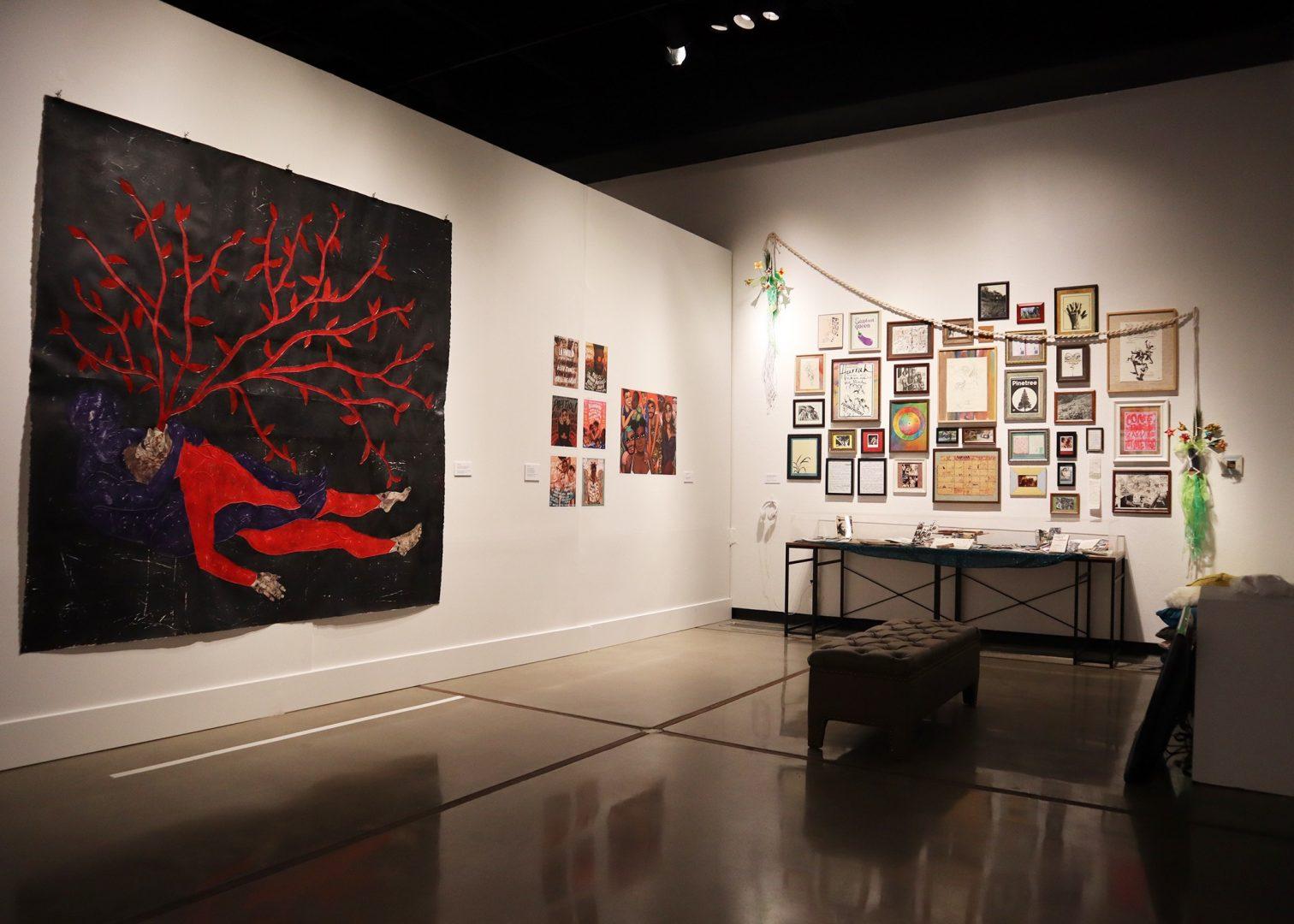It was a hot August night in 1969, and the Stonewall Inn, a tavern in New York City, was just about to make history.
The mafia-run bar could be argued to be progressive; it welcomed members of the LGBTQ+ community at a time when anti-gay laws were rampant.
A routine raid turned out to be anything but when patrons fought back against the discrimination, harassment and brutality.
Critically acclaimed art exhibit, “Nobody Promised You Tomorrow: Art 50 Years After Stonewall,” is now showing at Fresno State’s Phebe Conley Art Gallery to reflect on the uprising through the lens of LGBTQ+ artists born after this pivotal moment in history.
“My hope is that people just really engage with this exhibit and come in without any expectations other than to just sit with the artwork, engage, learn, and ask questions; because those questions lead to thoughtful conversations, they lead to new perspectives, they lead to being allies, they lead to friendships, and they can lead to healing,” said Cindy Urrutia, director of the Center for Creativity and the Arts (CCA).
The various media combine to tell a story of revolt, heritage, care and desire. The exhibit explores the pain of the past, but also the promise of the present and hopes for the future.
“As someone who is part of the community, when I see all of this work, it is really uplifting and reminds me that we have a very strong community,” Erin Ryan, gala sitter and Fresno State art graduate student, said.
Urrutia adds that the exhibit is also inclusive of voices of color, such as African American transgender activist Marsha P. Johnson, who first famously said, “nobody promised you tomorrow.” Most of the artists featured are also members of the BIPOC community.
David Ordaz, a senior in the arts program at Fresno State, believes art can be an especially powerful tool for minority groups.
“Art is one of the strongest mediums you can use to communicate ideas, concepts and language,” he said. “I’m Hispanic, and one of the reasons Hispanics, especially here in the Central Valley, were able to gain political power was because of the Chicano movement, and behind the Chicano movement was a ton of art.”
The exhibit was originally featured in 2019 at the Brooklyn Museum. Additional latinx artists from the West Coast have been included in the Fresno State gallery. A generous donation from the James B. McClatchy Foundation paired with the hard work of the CCA made the local showing possible.
The exhibit is free and will run until Oct. 31. Doors are open to the public from Tuesday to Friday between 10 a.m. and 4 p.m., Saturday from 11 a.m. to 3 p.m. and Sunday by appointment. Masks are required.
A reception will be held on Sept. 9 and a catalog of the artwork will be made available Sept. 6.
“Our House”, a resource room located right across from the gala will be open for visitors to sit back, relax, and read more about the community.




